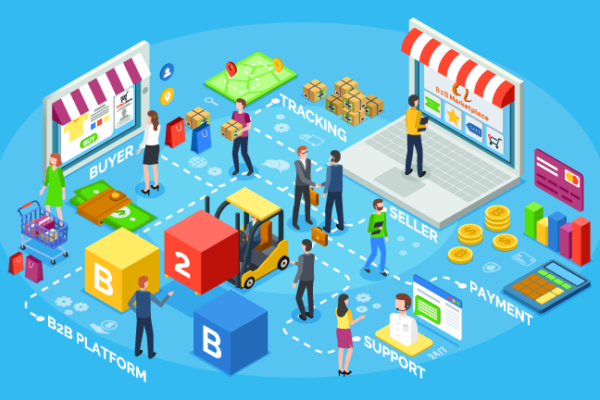Most sellers are confused about whether to sell on their own eCommerce website or choose a marketplace for trade. Online marketplaces are powerful ways to sell. But how are they any different from the eCommerce website you invested so much in for development?
To decide which one is better for your business, consider these differences.
- Ownership: The first difference is that an eCommerce website is owned and maintained by you, the business owner. A marketplace is a portal owned by a third-party, includes a listing of products and services on sale by many sellers. If you are an MSME business, you can have your own e-commerce website and still sell on a B2B Marketplace as a marketing strategy.
- Single Vs Multiple advertisers: On an eCommerce website, you are the only seller. Only your products are showcased. On a marketplace website, there are many other competing sellers. Hence, the strategy of sales on an eCommerce website is different from that of a marketplace.
- Sources of traffic: eCommerce websites can attract traffic, only to the extent you spend money and promote. In comparison, marketplace websites gain higher traffic easily and rapidly due to the presence of large and diverse products and services. The impressions of your business listing on customers are way higher compared to your own standalone website. Eventually, the sales volumes are also higher in the marketplace.
On your own website, the promotion and traffic decline rapidly when you stop spending on advertisements. But a marketplace is abuzz with traffic and that spills over to your company’s products and services.
- Competition: There is no competition on the website as it is owned by your business that’s an advertising and promoting. The marketplace is a collection of many sellers and hence the competition is fierce. But the same competition makes your products more visible.
- Efforts required: It takes considerable time and effort to set up an e-commerce website and make it popular enough for people to come to it and buy from it regularly. There are many popular eCommerce solutions like Shopify, Woocommerce, Magento, BigCommerce and others which can help you set up a beautiful and secure eCommerce website. But it still takes a lot of money and effort on two counts: one, to maintain the site in terms of security and updations and two, to keep getting traffic month on month by spending money on digital marketing. This problem is solved at the marketplace wherein the setup is already there, and so are the buyers. All you have to do is sign up, list out, and begin selling. The technical development and maintenance headache are not of the seller.
- Investment in analytics: Typically, a marketplace is better equipped to track their analytics than a website. Trend indicators on the marketplace help businesses understand which products generate more income than others and accordingly offer marketing solutions. Because of the sheer low volume of a single seller e-commerce website, it is challenging to implement these indicators on regular websites.
An e-commerce website is a long shot and takes its own time to develop into a profitable, income-generating channel, whereas a marketplace can begin getting your enquiries within a short time of setting up. It is hassle-free, much easier, and quicker to sell profitably. It makes sense for a business to sign up on a marketplace and keep a web presence to support the transactions in the marketplace.






